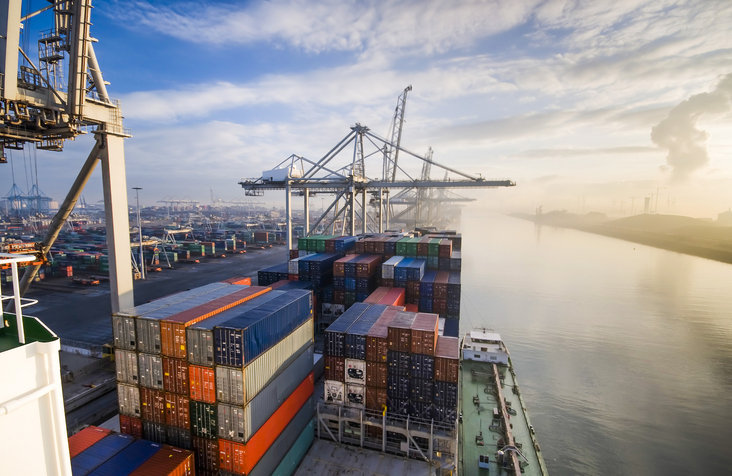
The Weekly Roar
In this week’s Roar: No intervention coming for ports, global fallout from a strike, new de minimis rules, building charging infrastructure, and declining U.S. freight volumes.
A possible port strike in the U.S. is the big story in supply chain right now. The Biden administration has said it will not be stepping in to mediate the International Longshoremen’s Association (ILA) dispute. With the October 1 strike deadline fast approaching, the government is encouraging both parties to continue their negotiations, despite the fact that the Taft-Hartley Act allows for presidential intervention. 177 trade groups have urged Biden to restart negotiations to avoid further disruptions to the U.S. economy and supply chains.
 The impact of a port strike will be far-reaching, with European and Latin American imports into the country particularly affected. Meaning they’ll be stranded due to limited alternatives. As for Asian imports, they at least have the option of rerouting to West Coast ports, although this could place a strain on their infrastructure as well.
The impact of a port strike will be far-reaching, with European and Latin American imports into the country particularly affected. Meaning they’ll be stranded due to limited alternatives. As for Asian imports, they at least have the option of rerouting to West Coast ports, although this could place a strain on their infrastructure as well.
The U.S. is proposing new de minimis rules. Under the current version, shipments under $800 can enter the U.S. without paying duty—and with little inspection. The flood of cheap goods from Chinese e-commerce platforms has skyrocketed in the last year from 140 million packages annually to more than a billion. However, some in the industry are voicing concerns. Air cargo would almost certainly see a drop in demand, and the new rules may have a negative impact on e-commerce overall.
Several major companies, including PepsiCo, Maersk, and Microsoft, are working on a pilot to electrify trucking along the Interstate 10 corridor between Los Angeles and El Paso. The focus is on building a charging infrastructure to support long-haul electric trucks and aligns with broader goals to reduce carbon emissions and enhance sustainable logistics. The initiative is part of the U.S. National Zero-Emission Freight Corridor Strategy, and TeraWatt Infrastructure will manage the charging hubs.
The August 2024 Cass Freight Index reports a 1.9% annual decline in U.S. freight shipments, though the rate of decline is easing compared to previous months. Shipments saw a slight 1.0% monthly increase. Freight expenditures dropped by 9.0% year over year, a steeper decline than in July, with a 3.0% drop in freight rates contributing to this. Researchers have noted that growing demand and slower capacity growth are helping stabilize freight volumes, but expenditures are expected to fall 11-12% this year.
For the rest of the week’s top shipping news, check out the article highlights below.









